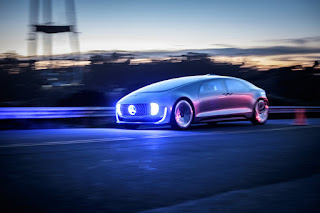World with No Traffic Lights & Tickets
New Driverless Car Tech
Big Energy Efficiencies and Travel Time Savings
Engineers at the University of Delaware, in collaboration with Boston University, have developed a new technology system for driverless cars that could make traffic lights and speeding tickets obsolete. The researchers used control theory to develop algorithms to control and minimize energy consumption in autonomous cars crossing city intersections with no traffic lights. That's just the start.
Energy Efficient Mobility Systems
They used the software to simulate results. The system enables the cars to conserve fuel and momentum while cutting travel time to their destinations. The engineers are developing solutions that could enable the future of energy efficient mobility systems.
Results and Potential
The results have been published in the journal Automatica. The team has created innovative tech to yield optimal acceleration and deceleration in speed reduction areas while avoiding crashes. The potential is huge. The engineers believe the innovations will enable the development of driverless cars that use 19% to 22% less fuel and get to destinations 26% to 30% faster than human drivers. The tech allows the cars to adjust to driving conditions with little or no driver input.. For instance, when the speed limit drops from 60 mph to 45 mph, the car automatically slows down. This is ongoing research and holds a great deal of promise.
 |
| Source: Mercedes Self-Driving Car Concept |
Big Energy Efficiencies and Travel Time Savings
Engineers at the University of Delaware, in collaboration with Boston University, have developed a new technology system for driverless cars that could make traffic lights and speeding tickets obsolete. The researchers used control theory to develop algorithms to control and minimize energy consumption in autonomous cars crossing city intersections with no traffic lights. That's just the start.
Energy Efficient Mobility Systems
They used the software to simulate results. The system enables the cars to conserve fuel and momentum while cutting travel time to their destinations. The engineers are developing solutions that could enable the future of energy efficient mobility systems.
Results and Potential
The results have been published in the journal Automatica. The team has created innovative tech to yield optimal acceleration and deceleration in speed reduction areas while avoiding crashes. The potential is huge. The engineers believe the innovations will enable the development of driverless cars that use 19% to 22% less fuel and get to destinations 26% to 30% faster than human drivers. The tech allows the cars to adjust to driving conditions with little or no driver input.. For instance, when the speed limit drops from 60 mph to 45 mph, the car automatically slows down. This is ongoing research and holds a great deal of promise.
%20(1)%20(1)%20(3)%20(2)%20(2).jpg)


Comments
Post a Comment